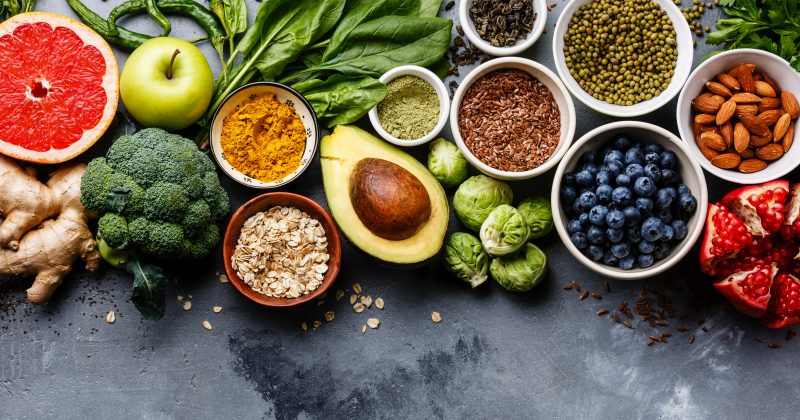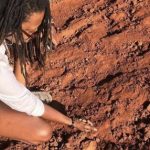2020 K-12 Workshop

April 24, 2020
The North Carolina Botanical Garden
1.0 CEU offered
Registration for the Food for All Workshop is closed.
The North Carolina Botanical Garden is located about 100 Old Mason Farm Road, Chapel Hill, NC 27517. Free parking is available. Our program will be in Reeves Auditorium, identified as Building A on this map.
******COVID-19 UPDATE 03/16/2020******
UNC World View values our participants and cares for the health and safety of everyone. Because of the rapidly evolving situation regarding the COVID-19, also known as coronavirus, the decision has been made to cancel the World View workshop Food for All.
Individuals who have paid directly to World View will receive a credit to be used at future programs during the 2019-2020 academic year or 2020-2021 academic year.
We know that as educators you are working hard to meet the needs of your students during this challenging time. If you have any questions regarding this cancellation of Food for All please contact Kimberly Hall, administrative services coordinator, at kimcar@unc.edu.
************
Learn about food, food systems and how food is used to express culture and identity in our state and globally. Includes curriculum resources. For K-12 educators of all disciplines.
$150 per person
With support from the North Carolina Botanical Garden.
Schedule | Presenters | Program Material | Lodging & Directions
Schedule
| FRIDAY, APRIL 24 | |
| 9:00 a.m. | Welcome |
| 9:15 a.m. |
Session I
Why Explore Food?
Amy Cooke, Teaching Associate Professor and Director of Undergraduate Studies, Environment, Energy, and Ecology Program, UNC-Chapel Hill
|
| 10:00 a.m. | Session II
Introduction to Southern Foodways
Marcie Cohen Ferris, Author and Faculty Editor, Southern Cultures, Professor Emeritus American Studies, UNC-Chapel Hill
|
| 10:45 a.m. | Break |
| 11:00 a.m. | Session III
Food Systems: Local and Global Connections
Lee Miller, Lecturing Fellow of Law, Duke Environmental Law and Policy Clinic |
| 11:45 a.m. | Session IV
A Discussion of African American Farmers, Food Access, Equity, and Activism in the American South
Shorlette Ammons, Equity in Food Systems Extension Associate, Committee on Racial Equity in the Food System, Horticultural Science, NC State University
Julius Tillery, Founder of Black Cotton, NC State Coordinator for the Black Family Land Trust Inc and Instructor at Roanoke-Chowan Community College
|
| 12:30 p.m. |
Lunch (provided)
|
| 1:30 p.m. |
First Voices/Changing Voices in the South
First Southerners: Indigenous Cultures
New Southern Latinx Food Cultures
Chinese Restaurateurs of North Carolina Michelle T. King, Associate Professor and Director of Honors Program, Department of History, UNC-Chapel Hill
|
| 3:15 p.m. | Break |
| 3:30 p.m. | Session VI
Finding the “Stain of the Plantain”: Classroom Connections for the Hungry Educator
Carina Cordero Brossy, K-12 Global Food and Gardening Teacher
|
| 4:30 p.m. | Close |
Presenters
 |
Shorlette Ammons is a native of Mount Olive, North Carolina, where she grew up in a large family of farmworkers, cooks, and storytellers. She is a former children’s librarian, with an MLS degree from North Carolina Central University in Durham, NC. Shorlette currently serves as Equity in Food Systems Coordinator, Extension Associate with the Center for Environmental Farming Systems at NC State University, although her work is statewide/regional with participation in some national networks. She leads the CEFS CORE (Committee on Racial Equity) team where she coordinates and facilitates racial equity trainings and ongoing learning sessions, guest lectures and develops curriculum and strategic tools to address food insecurity and other food systems disparities through the lens of structural racism. |
 |
Carina Cordero Brossy is a K-12 global food and gardening teacher at a Charlotte-area independent school. Her unique high school culinary course, Taste of the World, explores the intersection of history, culture and gastronomy while introducing students to several guest home cooks and chefs who represent Charlotte’s immigrant community. Carina is also the curator and host of Our Edible Stories, a podcast and educational resource highlighting how personal stories and cultural identities drive food choices in the multicultural American South. With over 15 years experience in global education, Carina has worked with K-12 schools, colleges and overseas immersion programs to integrate best practices in intercultural communication and experiential learning. As a former UNC at Chapel Hill World View faculty, Carina coordinated globally focused professional development programs as well educator study visits to Honduras, Costa Rica, India and Russia. |
 |
Amy Cooke is a teaching associate professor and director of undergraduate studies for the Environment, Energy, and Ecology Program at UNC-Chapel Hill. Her areas of expertise include conservation, water and other natural resources, Africa, agriculture and the environment, and international development. Amy teaches courses on the intersection of natural resource management, international development and human rights and is particularly interested in water, agriculture and Africa. |
 |
Marcie Cohen Ferris was born and raised in northeastern Arkansas. Her deep attachment to the study of place and the American South is rooted in her childhood. For over forty years, she has studied, documented, interpreted, exhibited, taught and written about the South, largely through its foodways, material culture, and the southern Jewish experience. She’s committed to fostering the creative economies of a diverse, equitable, vibrant region. As a professor emeritus of American Studies at UNC-Chapel Hill, Ferris is an editor for Southern Cultures, a quarterly journal of the history and cultures of the U.S. South. From 2006-2008, she was president of the board of directors of the Southern Foodways Alliance. She was co-chair of UNC Chapel Hill’s pan-university academic theme, FOOD FOR ALL: LOCAL AND GLOBAL PERSPECTIVES, 2015-2018. And, under her leadership, a food studies minor was initiated at UNC Chapel Hill in 2018. Ferris’s major publications include: The Edible South: The Power of Food and the Making of an American Region and Matzoh Ball Gumbo: Culinary Tales of the Jewish South, and she co-authored Jewish Roots in Southern Soil: A New History. She’s currently working on her next book with UNC Press, Edible North Carolina: A Journey Across a State of Flavor, exploring the contemporary food movement in the Tar Heel State. |
 |
Michelle T. King is an Associate Professor in the History Department at the University of North Carolina at Chapel Hill. She taught the Spring 2019 course, Honors 353, “What is Chinese Food? A History of Cuisine, People, Places, and Taste.” She also teaches other classes on modern and late imperial Chinese history. Her research specialty is Chinese gender history and she is currently working on a book project about Fu Pei-mei (1931-2004), the beloved cookbook author and television personality from Taiwan. She is editor of the volume, Culinary Nationalism in Asia (Bloomsbury Academic Press, 2019), author of Between Birth and Death: Female Infanticide in Nineteenth-Century China (Stanford University Press, 2014), and has written a variety of other articles and book chapters on Chinese gender history and food history. Michelle received an MA from Stanford University and a PhD from University of California, Berkeley. |
 |
Lee Miller is a lecturing fellow of law at the Duke Environmental Law and Policy Clinic. His work centers on the potential of law and policy to repair agriculture and make it regenerative rather than exploitative. He is the founding policy director at Acre Policy, a nonprofit focused on subnational policy that support farmers, ranchers, climate mitigation and local ecosystems. When he’s not creating policy, Lee works at his small farm in Hillsborough, NC, where he and his spouse raise sheep, bees, veggies and flowers. He holds a JD from Yale Law School and an MEM from Duke’s Nicholas School of the Environment. |
 |
Julius Tillery is a fifth generation farmer (cotton, soybeans, peanuts) from northeastern North Carolina. He founded Black Cotton, a décor and accessories company, in 2016 and is changing the narrative of cotton and African American farmers. His career has focused on work as an advocate, a teacher and resource provider in the North Carolina agriculture and environmental sectors since 2009. Julius is currently the NC State Coordinator for the Black Family Land Trust and serves on the administration council of Southern SARE (Sustainable Agriculture Research and Education) as well as being a member of the Conservation Fund’s Resources Communities program. He also teaches courses in modern agriculture at Roanoke-Chowan Community College. Julius’ work is committed to improving the lives of farmers and farming communities across the US. Julius is a graduate of the University of North Carolina at Chapel Hill with a degree in Economics and minor in Entrepreneurship. |
Program Material
More information coming soon!
Lodging & Directions

